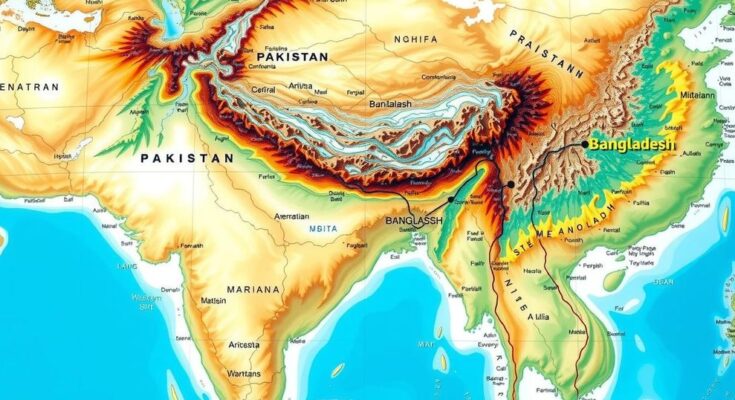President Trump has announced the cancellation of 83% of USAID programs, affecting countries like Pakistan and Bangladesh. This decision stems from a review emphasizing funding alignment with U.S. interests, leading to major impacts on nations previously receiving substantial aid. Numerous projects are expected to cease as a result.
In a significant policy shift, President Donald Trump has announced that no funding will be disbursed by the United States Agency for International Development (USAID). According to U.S. Secretary of State Marco Rubio, a comprehensive review has resulted in the cancellation of 83% of USAID programs, which will adversely affect countries such as Pakistan and Bangladesh that previously received substantial financial aid.
Rubio disclosed that approximately 5,200 contracts had been signed for various programs globally, with billions of dollars allocated. However, it has been determined that much of this funding did not serve America’s core national interests, and in some instances, the funds were used detrimentally. Consequently, only programs that provide direct benefits to the United States will remain operational.
The Secretary of State mentioned that, following consultations with Congress, there will be an attempt to sustain the remaining 18% of USAID programs, which equates to nearly 1,000 initiatives that align with U.S. interests. The DOGE team, which Rubio credited for its diligent work, focused on identifying financial leaks within the system.
Prior to these funding cuts, Bangladesh was allocated $440 million, Pakistan $231 million, and Sri Lanka $123 million through USAID. With this cessation of funds, numerous ongoing projects in these countries have now been stalled, as concern arises over the potential use of such funding for activities counterproductive to U.S. relations, particularly regarding India.
In summary, President Trump’s announcement marks a substantial reduction in USAID funding, significantly impacting nations such as Pakistan and Bangladesh. The decision to cancel a majority of these programs is rooted in a strategic review emphasizing U.S. national interests. As a result, ongoing projects may be halted, raising concerns about the implications for regional stability and development.
Original Source: www.india.com




